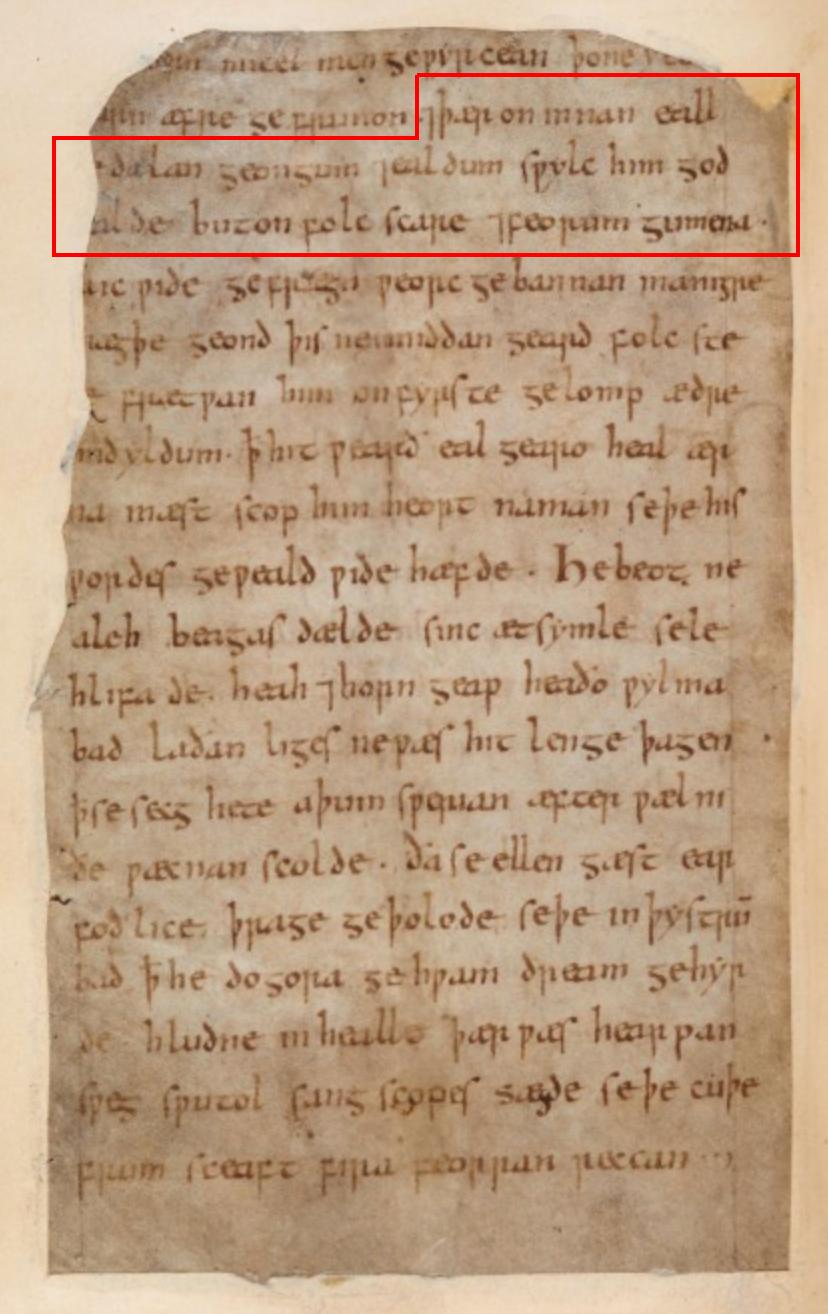The original text is:
⁊ þær on innan eall gedælan
geongum ⁊ ealdum ſƿylc him god ſealde
buton folc ſcare ⁊ feorum gumena
That is:
and there within all distribute
to young and old such as god gave him
except folcscare and lives of men

(Nowell Codex, folio 133v.)
Folcscare is a crux (a difficult word). Folc- means ‘of the people; held in common’ and scare is the accusative of scearu meaning ‘share; portion; division’. Bosworth & Toller, An Anglo-Saxon Dictionary, give the definition:
folcscearu A division of the people, nation, multitude
illustrating it with the quotation:
Ðæt hie hine onsundne gebrohten of ðære folcsceare [that they should bring him uninjured from that tribe of people]
So why did Heaney translate translate folcscare as ‘common land’? Well,
[Frederick] Klaeber glosses folcscare as ‘public land’, in reliance on the view of [John Mitchell] Kemble that in early Germanic society there was a common fund of land over which the king originally had no control. In this he is followed by many. Such a view, influenced by Kemble’s strong political feelings about the continuing enclosure of commons in his day, is now rejected by most historians and legal scholars […] Yet the usual meaning of this poetic word is ‘nation,’ and not impossibly the poet means that it was not Hrōðgār’s prerogative to confer the rule of the nation upon another by his sole choice, for […] the consent of the witan and folk seems to have been required for succession in the ancient Germanic world.
Robert D. Fulk, Robert E. Bjork, John D. Niles (2008), Klaeber’s Beowulf, University of Toronto Press, p. 119.
I note that Kemble discusses common land under the name folcland (not folcscearu), for example:
Folcland may be considered the original and general name of all estates save the hlot, sors or alód of the first markmen: the whole country was divided into Folclands, containing one or more hides, subject to folcriht or the public law,—and hence having no privilege or immunity of any sort […] The power of disposal over this land lay in the nation itself, or the state; that is, in the king and his witan; but in what way, or by what ceremonies, it was conferred, we no longer know.
John Mitchell Kemble (1848), The Saxons in England, book I, p. 298.
Regardless of whether you take folcscare to mean ‘common land’ or ‘nation’, either way the line describes a limit on the power of the king: he can distribute his own possessions, but not the property of the people, whether that is the people’s land, or the people’s rule.
Similarly, the king cannot distribute feorum gumena, the lives of men. Perhaps this means that he could not distribute justice arbitrarily, but had to respect the rule of law.
